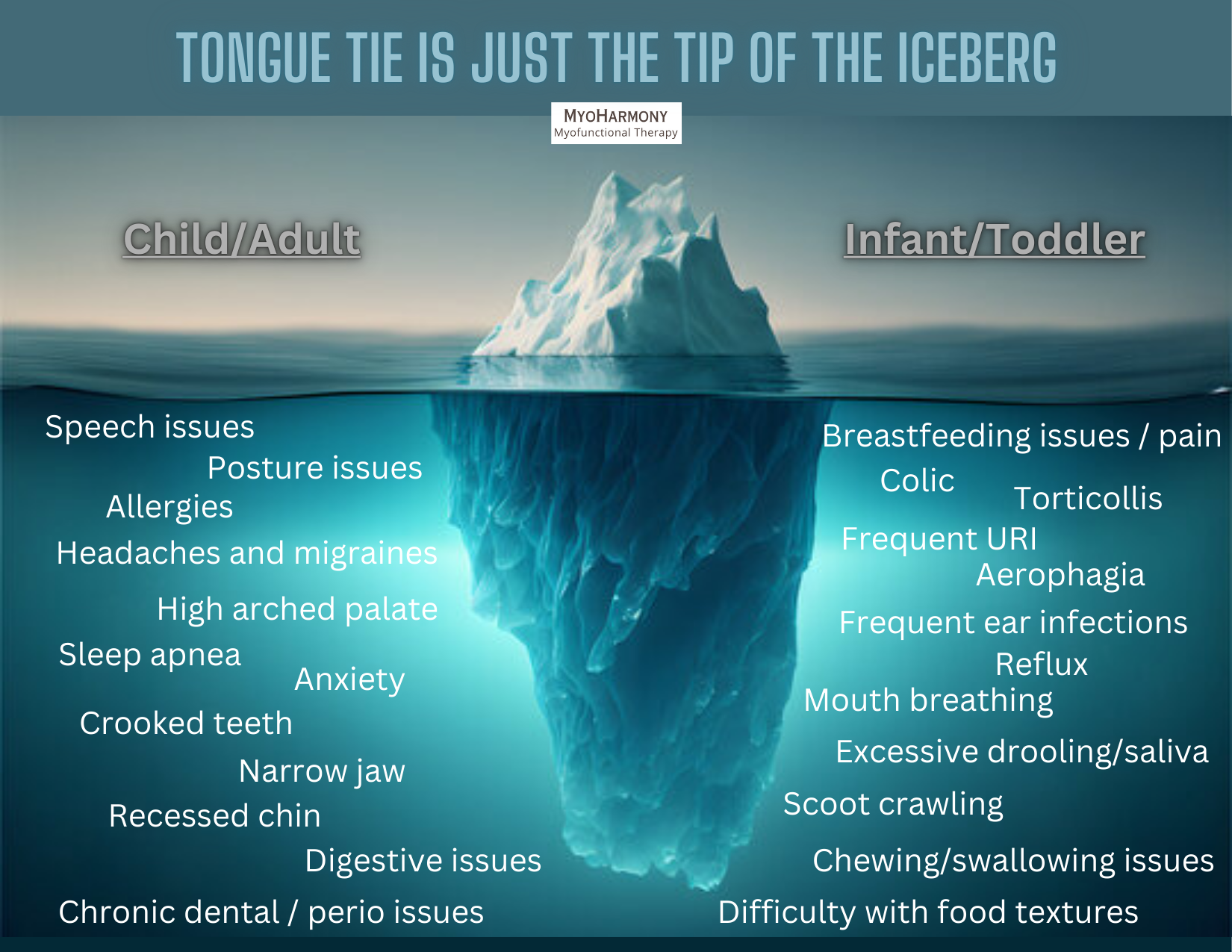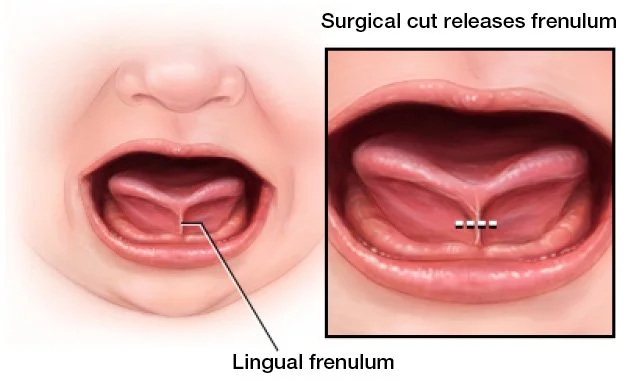Infants and Tongue Ties
Even though MyoHarmony does not work directly with infants, we understand that the effects of a tongue tie can be significant throughout the lifespan. That it why we have dedicated this page to provide resources and information gathered from trained infant specialists.
If you suspect an issue with your baby, it can be beneficial to seek out guidance from a tongue tie trained IBCLC (International Board Certified Lactation Consultant), along with cranial sacral therapy and/or chiropractics for your baby to help with overall body tension.
Our biggest piece of advice regarding infants?
Colic is not a diagnosis. It is a symptom of an underlying condition.
Breastfeeding problems are often linked to tongue-tie concerns in babies. Sometimes, a tongue-tied baby may be able to breastfeed without any trouble, so it may go undiagnosed or recognized.
The restriction caused by a tongue-tie can lead to changes in the development of the mouth, face, and skull, often accompanied with an open mouth resting posture or mouth breathing in children. This can in turn lead to symptoms including speech difficulties, ADD and ADHD, sleep disordered breathing conditions such as sleep apnea, and jaw and facial pain and tension.
The International Journal of Pediatric Research said it best:
Children with untreated short frenulum developed abnormal tongue function early in life with secondary impact on orofacial growth and sleep disordered breathing (SDB). The changes in orofacial growth related to factors including short lingual frenulum lead to SDB and mouth breathing very early in life. Recognition and treatment of short frenulum early in life – at birth if possible – would improve normal orofacial growth.
Addressing the tongue-tie from the start could save you a lot of health problems into adulthood. Being proactive is the key.
Infancy is the best time to treat myofunctional disorders. If you are a family member or friend of a newborn baby, look for these symptoms:
Acting irritable or fussy during or after feeding
Having difficulty creating a secure latch during nursing
Losing weight or having poor weight gain
Forming blisters or cracks on their lips
Acid reflux or frequently spitting up after feedings
Colic or overall fussiness
Breast pain, cracked or blistered nipples
Plugged milk ducts (which can lead to mastitis)
Engorgement
Your baby falling off the breast frequently during nursing
A feeling that your infant is chewing or biting on the breast
Toddlers and Young Children
Myofunctional therapy can be very beneficial for younger children and their families. Currently, I am only working with children aged 7 and older. If your child is younger than 7, send me a message and I can recommend other local myofunctional therapists who can treat your younger children.
For children 4 and younger, compliance in a myofunctional therapy program can be difficult due to their developmental stage. If your child falls into this age group, and you suspect a tongue tie or related issue(s) finding a knowledgable provider can prove helpful.
A good starting place, is working with an Occupational Therapist (OT) or Speech Language Pathologist (SLP) with specific training in oral motor and feeding therapy, along with tethered oral tissues (TOTS) training/knowledge.
The oral motor therapy is a precursor for myofunctional therapy because it’s more of a passive therapy with more active guidance from the parent and therapist for this young age group. Similarly, tongue tie releases are typically not recommended for this age group due to complacence issues with pre- and post-op care.


